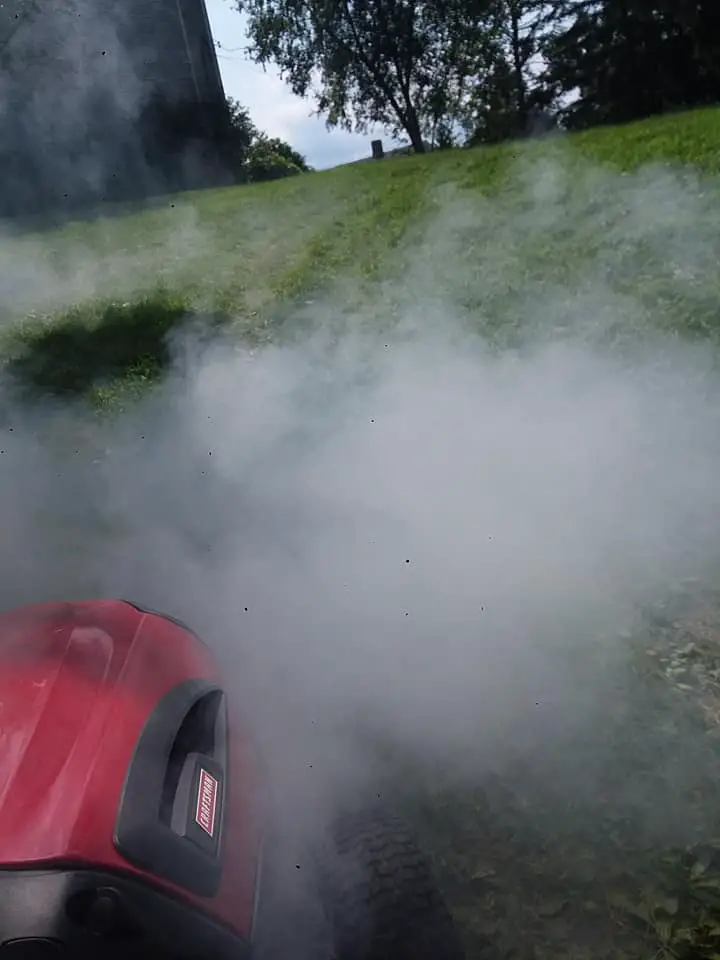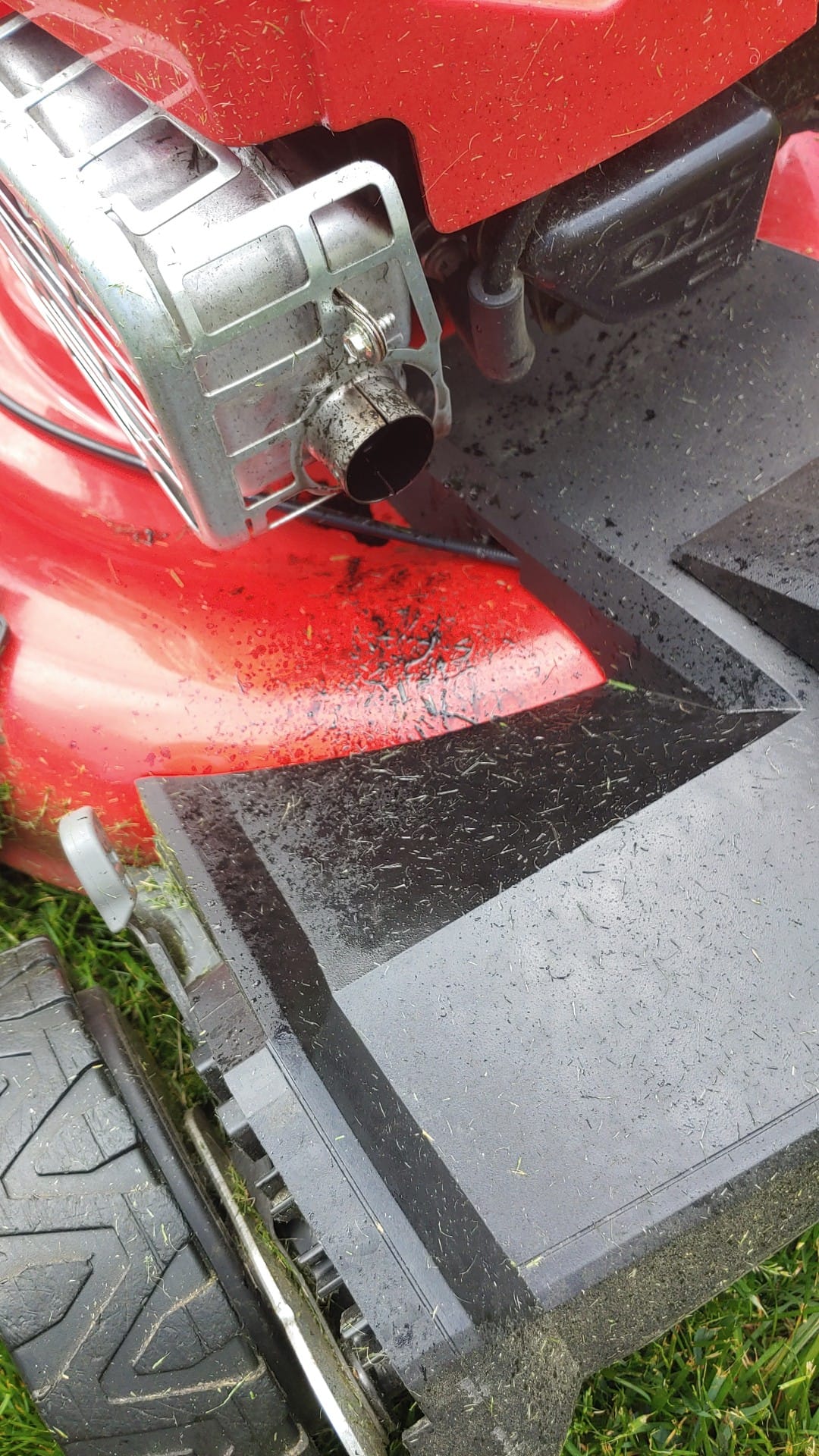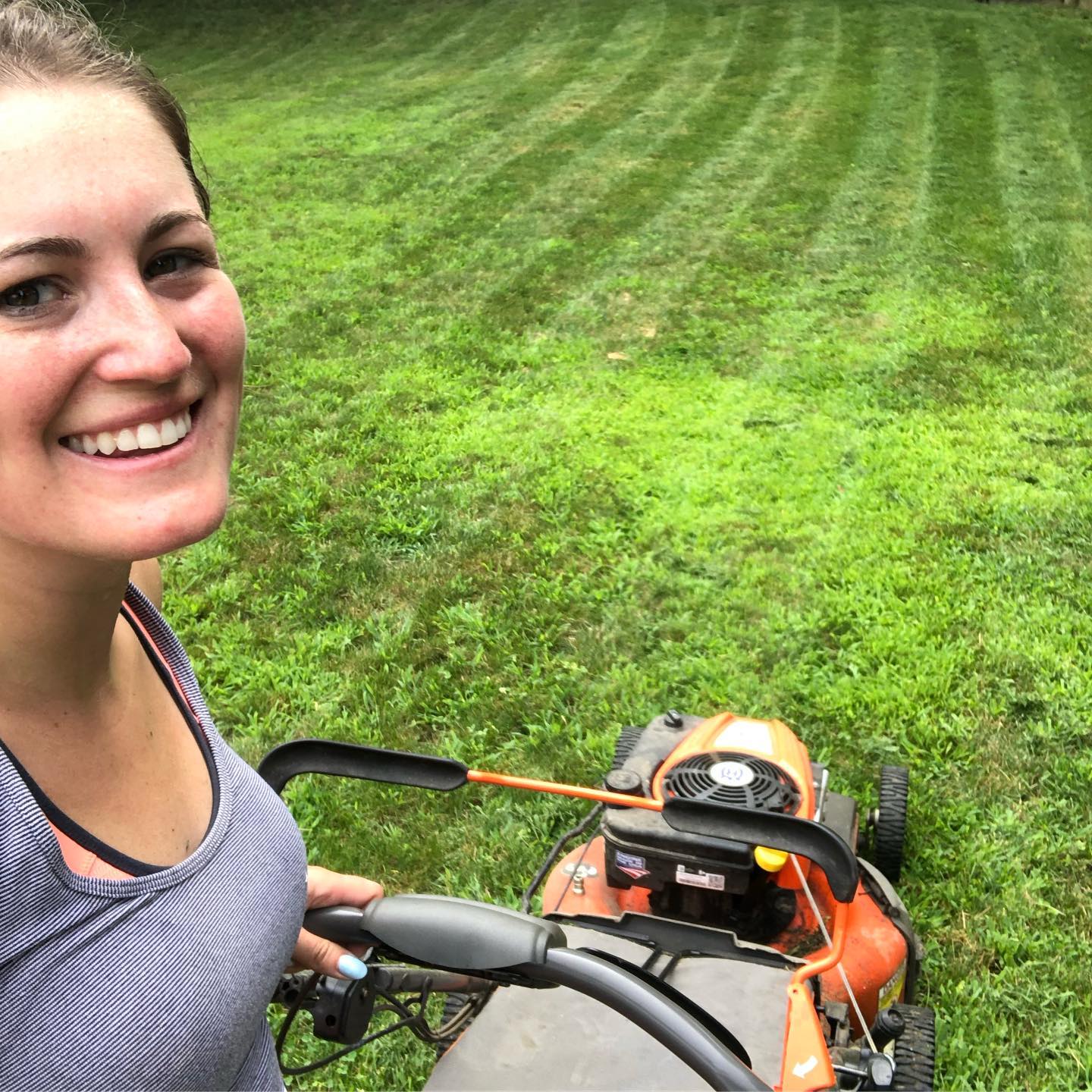Contents
Intro
Lawnmowers are among the most familiar household items, especially for residences with outdoor spaces or backyard gardens. However, there seem to be more myths around them than we expected – particularly regarding their emitted fumes.
In the past months, we have received many questions about such issues. Are lawn mower fumes dangerous? Is there any safety tip to ensure a smooth experience? We will gladly lend you a helping hand by discussing them in depth. Let’s dive in!
Are Lawn Mower Fumes Dangerous?

Are they dangerous?
Despite many people wanting a different answer, the truth is not so positive: YES, their fumes, indeed many irretrievable harms. Many studies and research have dived into the matter, concluding that contacting their fumes increases your likelihood of getting cancer or lung-related diseases. And even if you don’t, excessive exposure still shortens your lifespan.
How so? It’s been speculated that lawnmower fumes contain a lot of cancer-triggering chemicals, particularly PAHs (26 different types) and benzopyrenes (100 micrograms, the one you often find in most commercial cigarettes sold everywhere.)
Sure, someone might argue 100 micrograms sound insignificant. But look at how many people cigarettes kill every year, and you will understand why even 1 microgram is deadly enough – let alone 100!
Read more: Can You Run A Lawn Mower Without A Muffler?
What Are The Three Safety Tips for Lawn Mowers?
Thousands of guidelines instruct you on helpful tricks to ensure a safe mowing experience. Regardless of which strategies you opt for in the end, NEVER forget these three golden rules of thumb.
First of all, do not forget your protective garments.
Wearing safe and tight-knitted safety clothes is among the fastest, most affordable (and, of course, also the most effective) ways to safeguard yourself against toxic fumes. Basic items include coats, gloves, and goggles.
You can also equip yourself with face masks, hats, et cetera to cover your body from head to toe, minimizing the risks as much as possible.
Secondly, never mow around children.
Even adults are vulnerable to the fume’s vicious attack, so you can imagine how things can get worse with small kids. Only choose to do your mowing when they are not home or staying far from the garden.
Asking someone (your partner, neighbor, or acquaintance) to keep a close eye on them is also strongly advised, preventing them from entering the garden when you are not looking.
Read more: Black+Decker BEMW472BH electric lawn mower review
Lastly, do not refuel indoors.
That’s right; never refill the mower tank in your garage, home, or any closed space. Mower smokes are extremely flammable, which means a spark is more than enough to cause nasty burns.
Always refuel the device outside your house, which helps keep the fume from accumulating.
Plus, if the fuel runs out in the middle of the mowing process, remember to wait a little bit (5-7 minutes) before you start refilling it. That keeps the machinery temperature cool, protecting you and your house from burning accidents.
Lawn Mower Injuries: Which One Is The Most Common?

Which injuries are common?
Cuts are undoubtedly the most common injury we have seen in mower users. How so? The mowers’ blades are pretty sharp (especially high-quality products – you know, to cut the grass easier), meaning they can also easily penetrate your skin.
Lucky victims might only experience slight scratches at best, but worse-case scenarios involve severe damage to the bones, tendons, ligaments, and muscles!
Remember to pool your utmost focus on the mowing tasks at hand to avoid such catastrophes; do not perform multiple tasks simultaneously – like mowing and watching TV at the same time, for instance.
Aside from cuts, burns are also quite widespread – which is expected since these fumes are flammable (as we already mentioned). Burning accidents with mowers often involve their fuels, gas tanks, exhaust, or engines.
To counterattack these risks, pay close attention to these compartments and remember not to overfill your tank. Once it’s full, stop fuelling it immediately.
When Should People NOT Use Mowers?
For starters, mowing grass in bad weather (especially in thunderstorms) is a big NO. Concentrating on the task at hand in such terrible conditions is by no means easy. Worse, excessive liquid or snow will clog the device and make it harder to run smoothly. You might cut your skin by accident.
Due to that same reason, you should also stay away from wet grass. Wait until the grass is completely dry (or at least 70-80% so) before bringing the device out). You will see that not only is the process carried out much faster, but your garden also enjoys a much cleaner cut.
Do not take care of your garden too late in the day (like, after 10 P.M or something). At that point, most of the dews have already settled deep into the grass, so your attempts to get rid of them are useless at this point.
All the noises that your mowers make will disturb neighbors’ peaceful sleep to no end, as well.
Do Mowers Produce CO (Carbon Monoxide)?

Do they release CO?
Yes. Like cars, mowers also release a huge amount of CO when operating. Hence, leaving the mower’s running engine inside your garage is never encouraged; always wheel it to the lawn before switching the device on!
For tips to calculate the device’s carbon footprints, click here. Also, we suggest you install some CO monitors in the garden, which can help protect your family.
Is It True That Electric Mowers Release Less Fume?
As implied pretty clearly by its name, these mowers do not need gas to run the engine. Instead, they rely on electricity for a smooth run, meaning zero smoke or fume is detected or released into the air.
As a result, many experts refer to them as a great alternative to traditional mowers. They are efficient, high-performance, and (most importantly) environmental-friendly.
Conclusion

Keep our guides in mind
Are lawn mower fumes dangerous? We believe this article couldn’t explain everything more clearly.
Please keep in mind our tips and advice to maintain your home’s garden at peak condition without compromising everyone’s health! If you still need more help, our inbox is always open.





